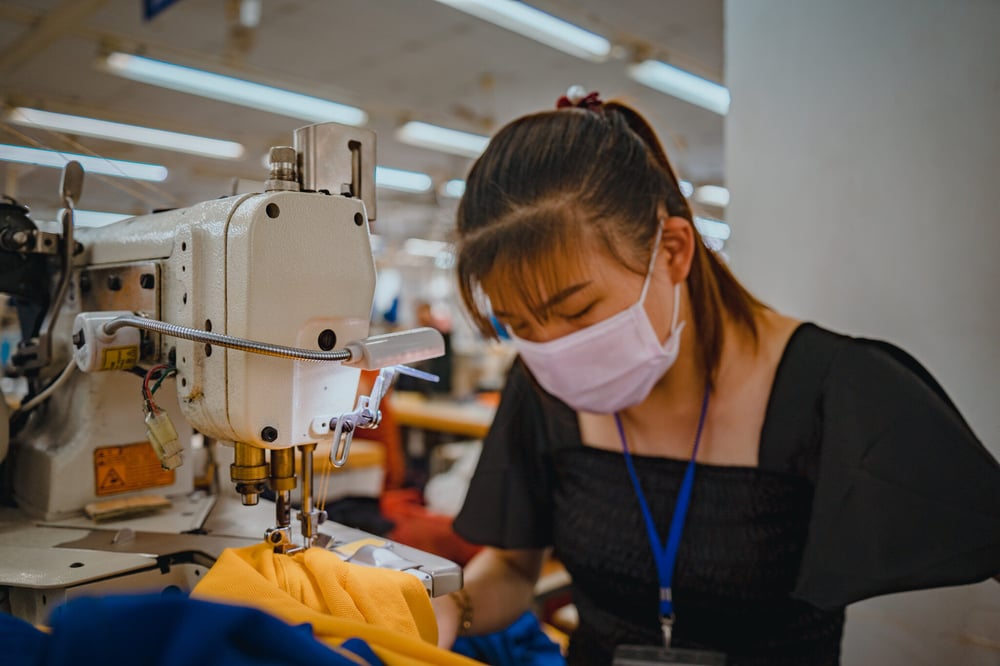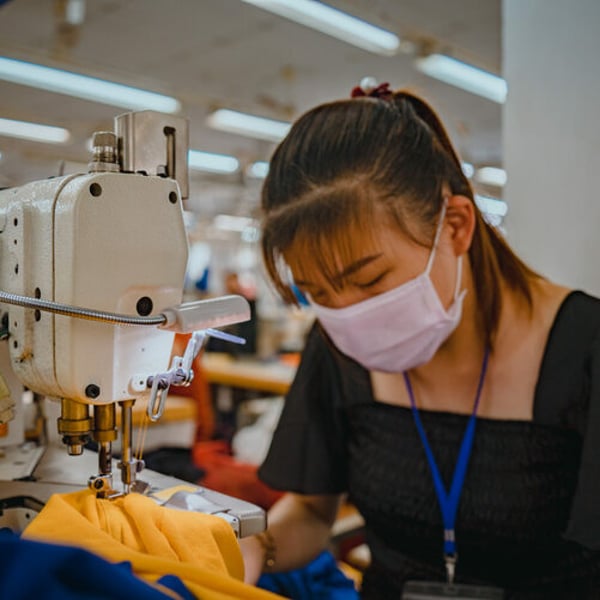By
Bloomberg
Published
April 17, 2025
Vietnam furniture exporter Paul Yang is in a 90-day race.
The vice president of a factory that makes indoor wood furnishings for the likes of Williams-Sonoma, Inc. and Crate & Barrel Holdings Inc. is being urged by American customers to ship “anything that’s ready” to them in the window of normalcy President Donald Trump granted before the risk of punishingly high levies hits Vietnamese products exported to the US.

It may be the last opportunity to secure revenue from a customer base that buys goods equivalent to over a quarter of a $400 billion economy if the Southeast Asian country doesn’t secure a deal before Trump’s grace period ends.
Nowhere is the perilous situation felt more deeply than in Vietnam’s southern industrial province Binh Duong. With almost half of the $34.5 billion of goods exported out of Binh Duong last year shipped to the US, the region is especially vulnerable to tariff shocks.
“I’ve had so many video calls with my customers,” said Yang, vice president of Yang Cheng Wooden Industries International (Vietnam) Co., who last week was fretting about 200 containers of furniture worth $4 million stuck in warehouses and at a port after US customers told him to freeze shipments after Trump threatened to slap a 46% tariff on Vietnamese goods.
Yang’s anxiety reflects a broader sense of dismay in the trade-reliant nation as Trump pursues his so-called “America First” agenda that prioritizes economic gains for the US above others.
Binh Duong saw export orders worth more than $708 million get canceled over four days before the 46% tariff was to land, government data showed. More than 270 US orders for products ranging from shoes to electronics were scrapped, and another 175 were at risk, it said. That data could shift as US clients recalibrate amid the shifting tariff landscape.
Vietnam’s garment factories, many of which are located in Binh Duong, were bracing for as much as a 50% drop in orders before the high duty was, at least temporarily, lifted, said Duong Thi Ngoc Dung, vice chairwoman of Vietnam’s Textile & Apparel Association. Now companies are grappling with uncertainty about how to plan future production, she said.
Located just north of the nation’s commercial center Ho Chi Minh City, Binh Duong was known for rubber plantations and swampland before global suppliers began arriving about three decades ago. Now lumbering container trucks clog highways as wide as eight lanes in a region filled with industrial zones and businesses serving Mandarin-, Korean- and Japanese-speaking managers.
It’s a factory town on steroids, producing more than 10% of the nation’s total exports by value last year, according to data from the province. Binh Duong’s blue-hued, 20-floor twin-tower government headquarters topped with a helipad reflects the region’s remunerative relationship with the US.
Global manufacturers have not only created a myriad of production-line jobs but also an ecosystem of locally owned sub-suppliers, said Louis Nguyen, founder of Saigon Asset Management that invests in Binh Duong. “Many Vietnamese have steady jobs instead of working on farms, living in small shacks in fields.”
Ngoc Nguyen, a 32-year-old marketing manager for an international product quality control company, was destined to pick crops in Binh Duong if not for the factories, she said. Her father, a former farmer, supplies raw materials to plants, a business that lifted her family out of poverty.
“It’s like a dream for me,” said Ngoc, whose changing family fortunes meant she and her sister could attend college.
The Trump tariff, though, may challenge the nation’s ambitious goal of boosting economic growth to at least 8% this year. Each 1% drop in US export value could cut GDP expansion by about 0.08 percentage points, said Nguyen Thi Mai Hanh, head of the National Statistics Office’s accounts department.
“People in Binh Duong’s wood processing and manufacturing industry are panicked,” said Nguyen Ngoc Tung, deputy director of Tanuyen Hardware Co., which provides accessories to plants making wood products for companies such as Costco Wholesale Corp. and Walmart Inc. He worries he could be forced to lay off some of his 20 employees.
Some US buyers are requesting Vietnamese suppliers split the new 10% tariff, Tung said. But that’s unsustainable for companies with razor-thin profits, he said.
Furniture exporter Yang said his company can’t afford to absorb even half of the new duty. “I will have to shut down” if the tariff increases further, he said.
The sudden shift in tone from the US stunned Vietnamese, who long have considered America as a friend 50 years after the war between the two countries ended. As recently as 2023, Washington and Hanoi upgraded diplomatic ties to a “comprehensive strategic partnership,” the highest level assigned by Vietnam to any partner.
Chinese President Xi Jinping, during his visit to Hanoi earlier this week, called on Vietnam to jointly oppose “unilateral bullying” to maintain global trade, to which the Southeast Asian country demurred. China, Vietnam’s largest bilateral trade partner, was the country’s third-largest foreign investor last year, funneling $4.7 billion into projects ranging from textiles to tech components.
Rather than provoke Trump, Vietnam’s Deputy Prime Minister Ho Duc Phoc last week held urgent talks with US Treasury Secretary Scott Bessent and Commerce Secretary Howard Lutnick in search of a trade deal.
Since the US and Vietnam normalized relations in 1995, “our lives here have been bolstered enormously,” said Le Xuan Loc, owner of Dong Phuong Bolts & Screws Manufacturer. “There is no reason for the US to hamper the growth of Vietnam.”
His Binh Duong company, which makes items for companies such as Samsung Electronics Co. and sewing machine maker Brother Industries Ltd., had a stalled US order for jack-lift bolts — a contract worth about 20% of his annual revenue — just resume.
“If anything happens that hurt exports to the US, our business for sure will seriously suffer heavy losses,” he said.
An air of unpredictability weighs on Binh Duong factories, even as they rush to fill orders before Trump’s 90-day tariff negotiation deadline expires.
Every day workers at Yang’s 1,200-employee complex ask him for updates, he said. Suppliers pester him about what US customers are saying. For now, Yang has stopped buying material for future production.
“After 90 days, what’s next?” asked Yang, who also worries about the fate of his workers, hundreds of whom have been with him for more than 16 years. “We don’t know.”




